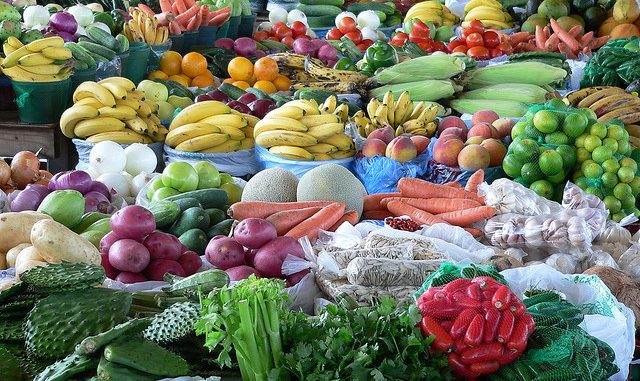
The ‘World Food India’ conference in Delhi in November informed us as much about the urban bias in development in India as about the disregard for public health and natural agriculture.
‘PepsiCo Leads ₹68,000 Crore plans for Food Sector’ read one media headline during the conference. Hundreds of corporations vend food, indiscriminate consumption of which creates digestive disorders, hypertension, heart disease, diabetes and even cancer.
Processed and packaged food can be especially challenging to our health as these also contain, in addition to chemicals like fertilizers, pesticides and herbicides, excessive amounts of sugar, salt and oil. Our government would outsource food to these corporations fully if left to themselves, instead of establishing ecosystems for family farmers to grow food without chemicals and undertaking the hard work of pushing and incentivising peasants to diversify their production from wheat and rice to a range of rapidly disappearing traditional foods (like millets) and more lentils, fruits and vegetables.
‘Food processing to be major growth area: consumer choices to fuel change, says FM’, read another media headline. Arun Jaitley has said “the farm to kitchen chain is going to change in India, with increased agricultural production … and changing consumer preference”. The consumer he refers to isn’t the marginal and small peasant, the landless dalit, the adivasi in the forest or the urban poor.
These corporations, with little interest in the health of consumers, are going to change ‘preferences’ to more sugared ‘beverages’, more potato chips, more chocolates, more fried snacks. If outsourcing the change of consumer preferences to corporations isn’t a recipe for a public health disaster, what is?
‘Private Sector Must Invest More in Contract Farming: PM’, announced yet another header. Companies are evaluating India as a market to sell their products and as an outsourcing hub.
This is farcical in a nation where a vast proportion of the population is malnourished and nutritionally challenged. Prime Minister Modi’s speech was targeted at corporations and their ‘ease of doing business’ with the consuming classes, and holds little hope for the poor. Each of these marks his unique approach to development where agency lies with mass-producing, machine-driven companies and entrepreneurs, not peasants and consumers.
The purpose of development is forgotten. All political parties are complicit in equating development with ‘GDP growth’ and ‘FDI’.
Not much of this will reach the farmer in the form of higher procurement prices; much will instead flow to corporations as profits. Few new jobs will be created in heavily automated food-processing factories. By their very nature, global corporations will import sophisticated machines and labour-eliminating attitudes from their home economies to run these factories.
Inequitable distribution
No small farmer will benefit; instead, already wealthy, large farmers in well-irrigated parts of prosperous regions of India will make money from these factories: the kinnow farmers in Punjab and potato farmers in Haryana. What is smothered by the development discourse is the critical issue of health sovereignty; we are ceding our rights to eat healthy, fresh, chemical-free, unprocessed foods to corporations.
The urban, educated consumer demands organic retailers undergo stringent checks and penalties for misrepresentation, and rightly so. These same people, however, are eerily silent about the absence of labeling on 99.9% of all food today that is grown with overdoses of chemical fertilizers and pesticides, preserved with chemicals, sugars, salts and fats. These hold no warning that consuming them over a lifetime will destroy our health.
The larger picture is quite bleak with little hope of redemption; therefore, all the more reason that individuals must act for themselves.
We and our children must beware of food or drink that comes in a package, and we must be mindful of who benefits from our purchases.
We must ask difficult questions of a system that produces the chemically poisoned food we consume, and of a government that outsources public health to corporations who package and process unhealthy food.
Finally, we must commence our very personal journey of discovery by engaging with a neighbourhood organic farm.
(The writer, once a corporate warrior, is now an organic farmer)
Source: The Hindu

Leave a Reply